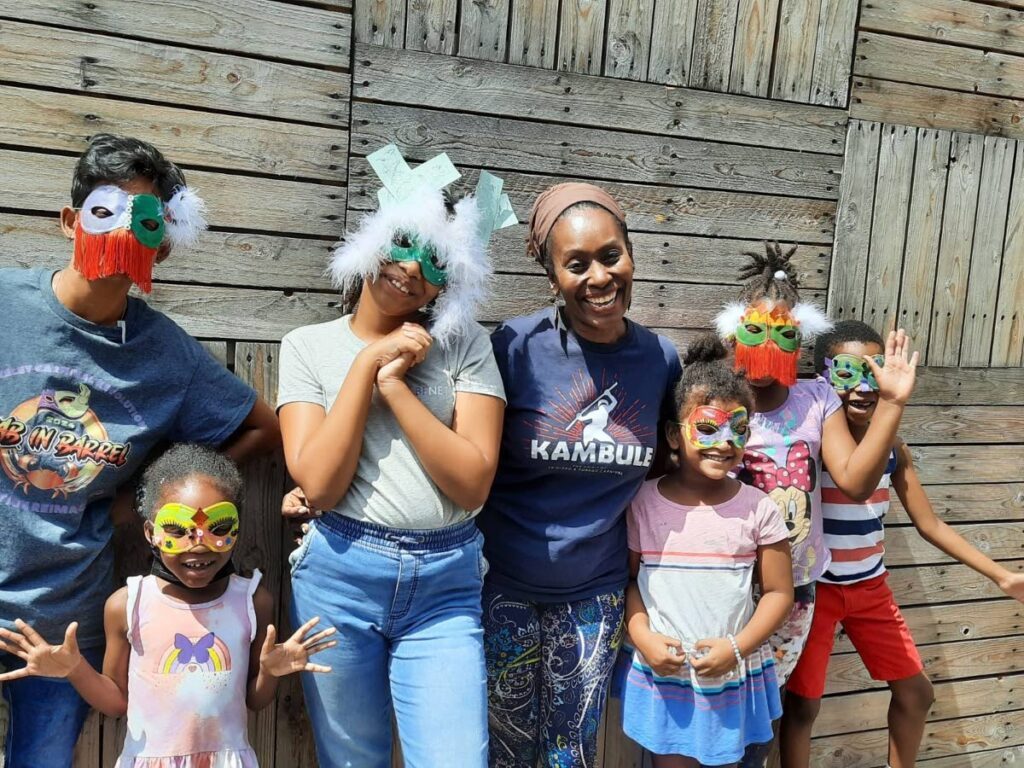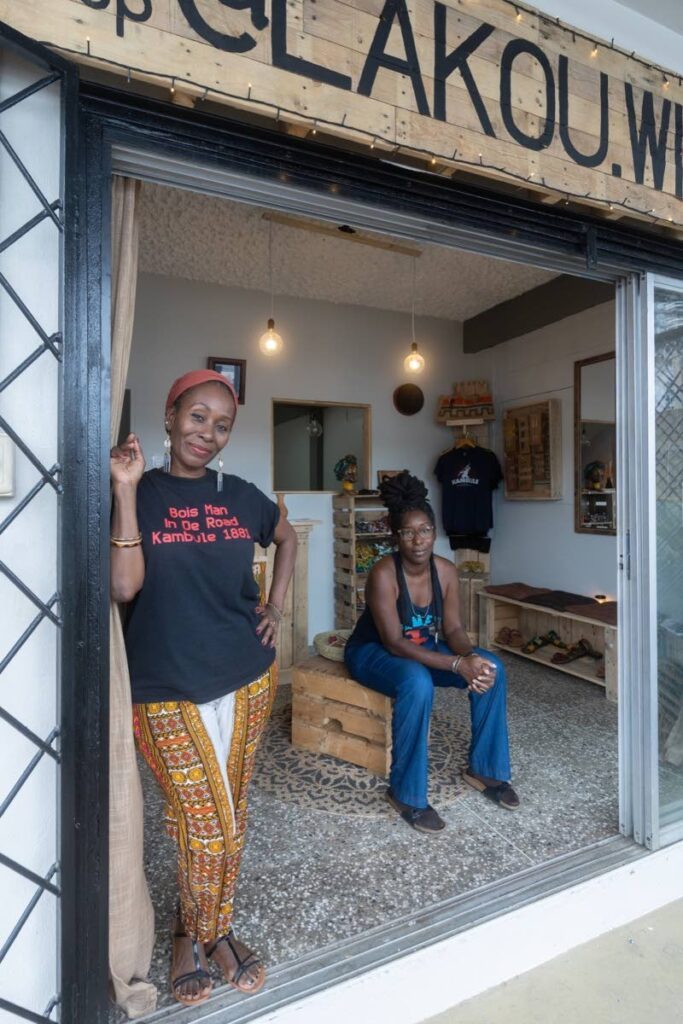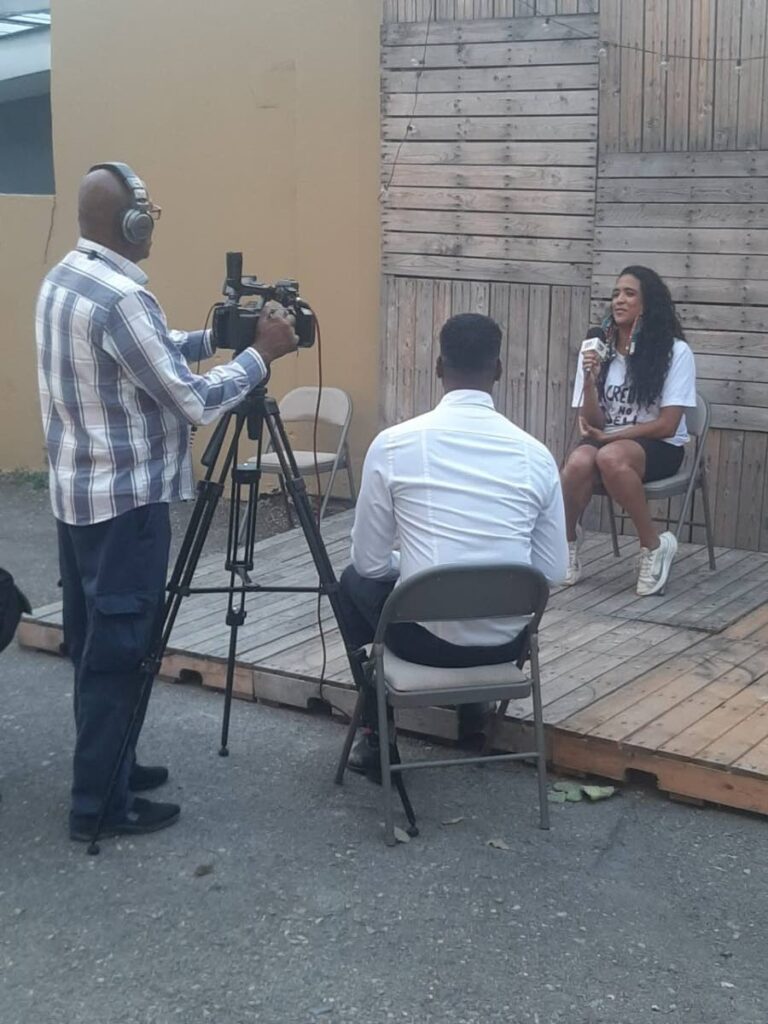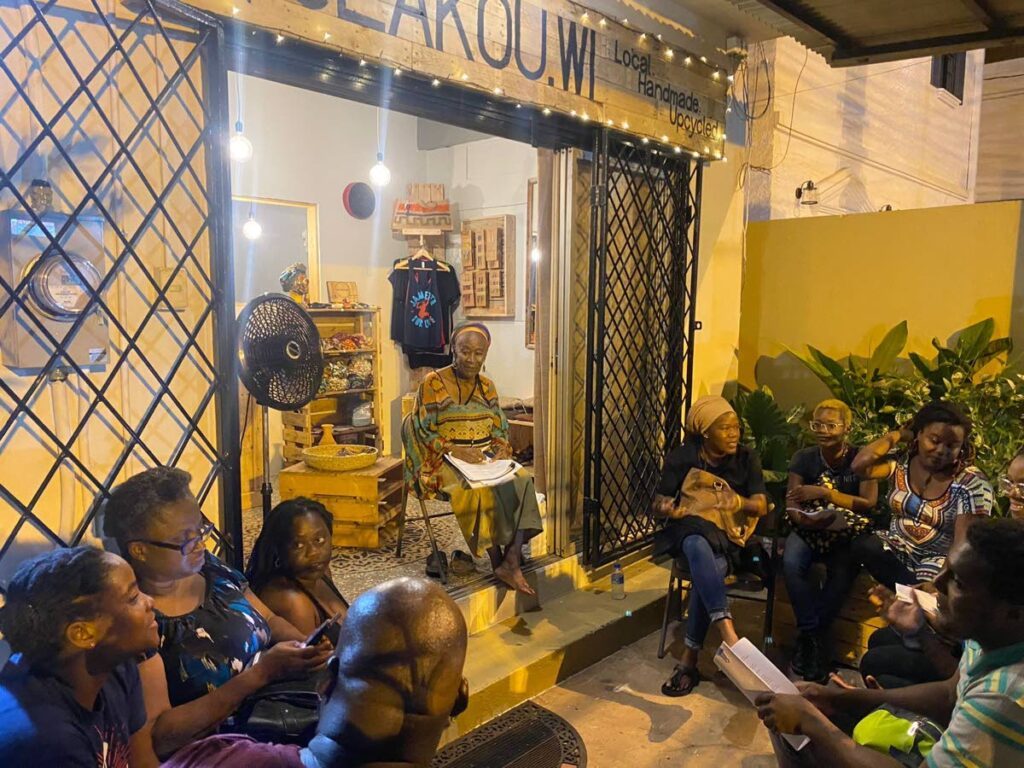Marking space for learning, empowerment at Lakou Wi

NEWSDAY REPORTER
AT 12 Warner Street, Newtown, Port of Spain, eight young children are being taught to colour cow masks as groovy soca music plays in the background.
The children were participating in a Totally Trinbago Easter camp at Lakou Wi, a space that cultural activist and manager Attillah Springer describes as a culmination of a longstanding dream.
She discussed the genesis of the place during a recent interview with Newsday.

She explained the origins of Lakou Wi, which means "yard" and "yes" in patois, began in 1998 with the formation of the Idakeda group by her elder sister, actor/choreographer and Newsday columnist Dara E Healy, to protect the intellectual property of their mother, poet and playwright Eintou Pearl Springer, and some of her patrimony for future generations.
"She has been working and giving away work for most of her life."
Eintou Pearl Springer is Idakeda’s "Creative Force" and Springer is a director.

This included securing publishing contracts and ensuring she received a fair deal if her plays were performed. Idakeda began creating opportunities and avenues to ensure they followed up with her publishing contracts and she received a fair deal if a play was being performed.
While Idakeda was in its formative stage, Eintou Pearl Springer was on the National Carnival Commission regional carnival committee and around that time the 1881 Canboulay Riots re-enactment by late cultural stalwart John Cupid was being performed. In 2004 she began writing the script for the play Kambule, which looked at the people of East Port of Spain and why they decided to fight against the colonial authorities.
Idakeda provides multi-disciplinary cultural interventions for a variety of local and international audiences and its guiding statement is "Changing Communities through Culture."
Springer said from the initial small dream of protecting their mother's work, Idakeda began doing Kambule productions, going on tours, and doing work in communities.
"Formalising the work Ms Eintou has been doing for most of her life as a cultural worker. Going into schools and working with young people. Talking with them about cultural forms and how they could be used to 'language' different forms of trauma in our communities."
She said Idakeda also engages in knowledge transfer with different groups: for example, the organisation has a very close relationship with the Hindu Prachaar Kendra and Orisha community.
But, she said, "One of the challenges always is space."
Before the creation of Lakou Wi, Idakeda would work in community centres and schools, but also had to compete with other things. For Kambule, the group rehearsed for many years at St George's College, Barataria – Eintou Pearl Springer's alma mater, Belmont Secondary School and the University of Trinidad and Tobago.
"But all the time looking for a space that we could use."
She pointed out that over 25 years the group has accumulated a lot of costumes, props, drums and other items. Idakeda needed a space to house all the things it had been collecting, which represented an inventory of local, Caribbean and African diaspora items. It also wanted a place to serve its different publics, who were mostly urban youth and mostly of African descent.
A space for WI
Lakou Wi opened in September 2023 with a conversation with Ravi-ji on the religious re-enactment of Ramleela and his work with the Hindu Prachaar Kendra. She said Idakeda was interested in applying the children's Ramleela model to serve the spiritual and cultural needs of African children.
Springer reported since the opening Lakou Wi has been hosting workshops, including one with an Ifa priest and another featuring TT novelist Merle Hodge and Grenadian poet Merle Collins, and a series of conversations entitled Lacouray in Lakou Wi on Carnival-focused subjects such as the role of traditional mas. A few weeks ago they hosted an Afro Soca House party featuring the Laventille Rhythm Section.
Lakou Wi also has a shop that sells Kambule merchandise and handmade clothing and accessories.

Springer said African people have traditionally marked their presence with their bodies and voices, but they have to begin marking their presence with space, and Lakou Wi was part of that important work.
She commented on the location being opposite the car park of the Italian restaurant Buzo, and described it as "very interesting" to have these two parts of society "rubbing against each other, and Lakou Wi "taking up space and making noise in a place where noise is not usually made."
Lakou Wi has also hosted researchers coming to study Carnival. Springer recalled a workshop with a Brazilian dancer that looked at the samba steps and their connection to African spiritual practice and Orisha practices. Last month the space hosted the No Woman No Fraid Stickfighting and Self-Defence workshop for women.
Springer lamented that stickfighting has received a "really raw deal" in society.
"It is not where it is supposed to be in terms of respect, recognition and regard in the community. So many elders have been lost in the last few years."
She said Idakeda wants to honour the legacy of stickfighting and a lot of work was still to be done in that area.
On the Totally Trinbago Easter camp, Springer said the children learned to make Carnival masks, play the drum and stilt-walk. She explained it was about finding ways to situate children in their space.
"So much of what they get is outside. How do we expect that they are going to grow up to be Trinbagonians if there's nothing that connects them to the landscape? It is really, really terrible that so much of what we give our children is not of them."
Springer stressed the concern was not cultural rigidity, but showing children they matter in the world.
She is also part of the newly reconstituted National Committee on Reparations and said she considers the work of Idakeda part of the work of reparatory justice. She pointed out the work surrounds two points of the Caricom Ten Point Plan for Reparatory Justice, namely an African knowledge programme and cultural institutions.
She said Lakou Wi was planned to be one of many spaces across the country, region and diaspora where work there will be work around learning and empowerment.

Comments
"Marking space for learning, empowerment at Lakou Wi"